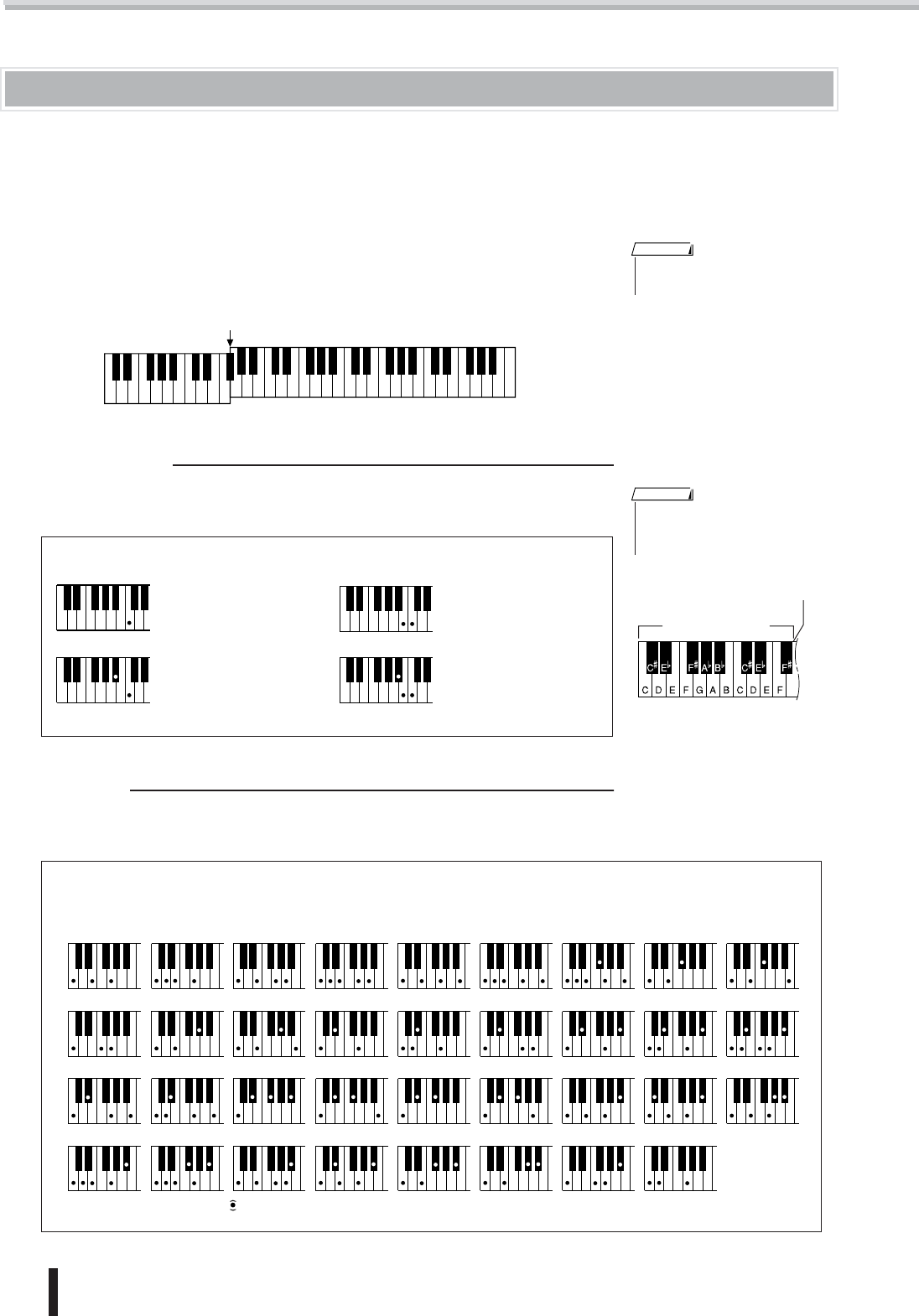
Style Functions
48 PSR-K1 Owner’s Manual
Playing accompaniment chords
There are two basic ways of playing chords for the accompaniment: Single Finger and Fingered.
This instrument uses a sophisticated function called Multi Fingering, which automatically recognizes the chord played, no
matter which way of fingering you use.
• Single Finger.........................................Simple chord indications
• Fingered................................................Conventionally played chords
The key range left of the Split Point (default setting: 54 or F#2) is referred to as the auto
accompaniment section of the keyboard. When using accompaniment, play the chords in
this range.
■ Single Finger
This method lets you easily play major, minor, seventh and minor seventh chords in
the auto accompaniment section of the keyboard by using three fingers or less.
■ Fingered
This method lets you play chords normally within the auto accompaniment section of
the keyboard, and the instrument plays the proper accompaniment.
Split Point (default setting: 54 or F#2)
• The Split Point can be changed.
(See page 42.)
NOTE
• The illustration below shows the
root names of the chords and their
corresponding keys.
NOTE
Split Point
(54 or F#2)
accompaniment section
of the keyboard
● How to play Single Finger chords
• To play a major chord
Press the root note of the
chord.
• To play a minor chord
Press the root note together
with the nearest black key to
the left of it.
• To play a seventh chord
Press the root note together
with the nearest white key to
the left of it.
• To play a minor seventh
chord
Press the root note together
with the nearest white and
black keys to the left of it
(three keys altogether).
C
Cm
C7
Cm7
● How to play Fingered chords
[Example for “C” chords]
* Notes enclosed in parentheses are optional; the chords will be recognized without them.
( )
( )
( )
( )
( )
( )
( )
( )
( )
( )
( )
( )
( )
( )
( )
( )
( )
( )
( )
CmM7
CM7
C6
Csus4
Caug
CM7aug
C7aug
C7sus4
Csus2
C7
Cm
Cdim
Cdim7
C7
CmM7
(
9
)
CM7
(
9
)
Cm7
(
9
)
C7
(
b9
)
C7
(
b13
)
Cm7
(
11
)
CM7
(
#11
)
C
(
b5
)
C
(
9
)
(
9
)
C6
(
9
)
Cm
(
9
)
C7
(
#11
)
C7
(
#9
)
C7
(
13
)
C7
Cm6
Cm7
C
(
b5
)
CM7
(
b5
)
Cm7
(
b5
)
CmM7
(
b5
)


















